Castlevania season two came to Netflix as I finished Daredevil season three. The timing was perfect. Daredevil was an amazing high, but thirteen hour long episodes left me wanting something quicker to follow it up. Castlevania’s eight episode run is exactly what I needed.
The first season was the best video game adaptation I’ve seen. Mortal Kombat is cheesy good fun, and the Street Fighter 2 anime movie is a blast, but Castlevania actually had something to say about the world. If you haven’t seen the first season, go watch all four episodes now. This review assumes you’ve seen both seasons. There will be spoilers.
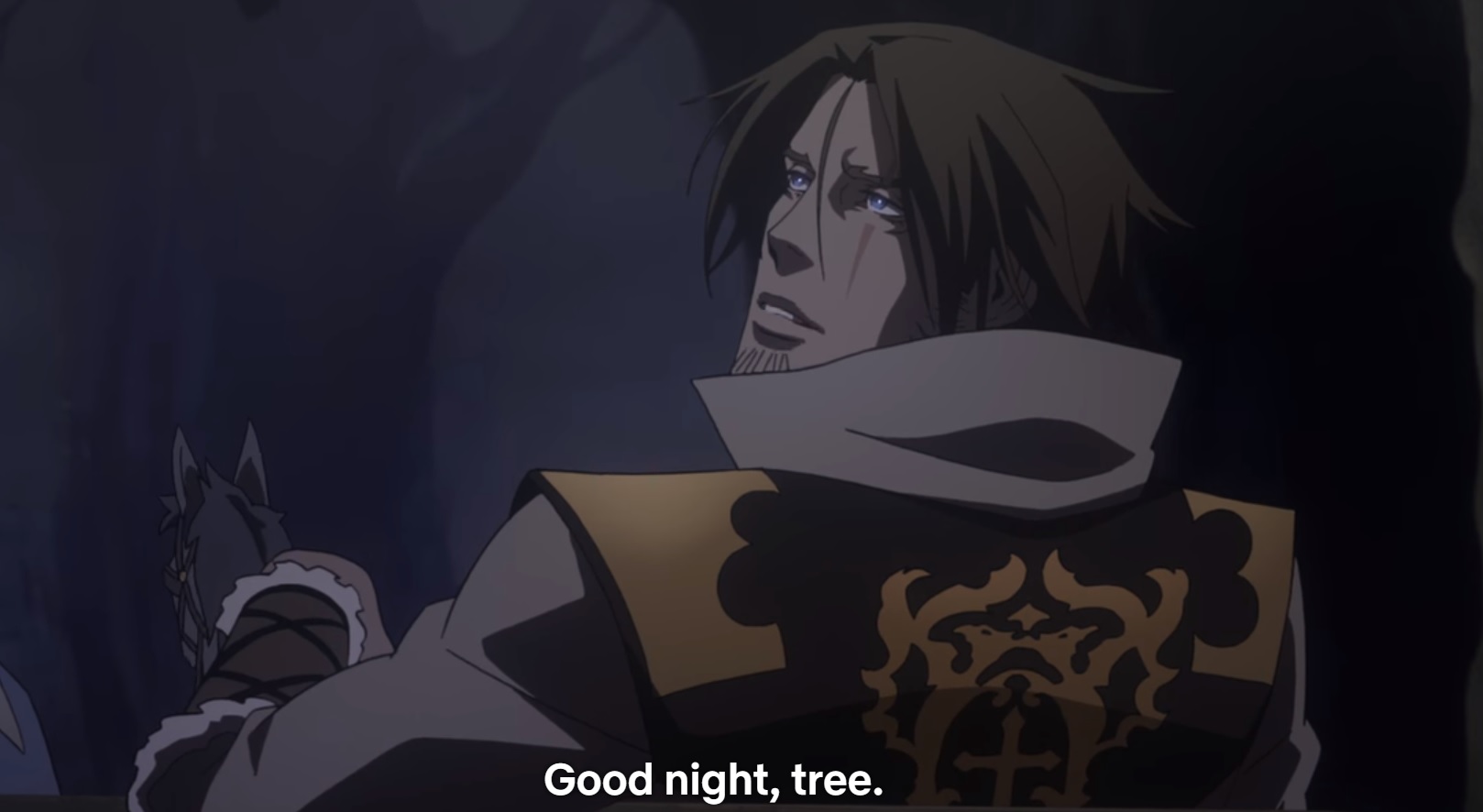
Starting with a flashback, season two reminds us why Dracula’s committing genocide. Lisa is a thoughtful and caring person destroyed by corrupted church officials while other humans watch without objection. Most shows would have repeated her fiery death scene for an easy emotional opening, but Castlevania gives us something new to add to her character arc.
The church arrests Lisa and burns her home and scientific equipment as works of Satan. The imagery immediately connects to her death, but the purpose of the scene is two-fold. We’re reminded of how she dies, but also the impact her death has on Dracula.
As they drag her away, Lisa is not begging for her life or the lives of the church officials. She begs for Dracula’s life. “He’s come so far.” She knows how her loss will sever the loose ties he’s made to the world. Her love for him is stronger than her concern for her life.

The next six episodes of Castlevania continues this trend, delivering character moments that flesh out who these people are. It’s a slow start, much slower than the first season. The slow burn beginning is polarizing.
With the season finished, I appreciate how connected you become to the characters. There are two human generals, Hector and Isaac, who I disliked at first. For the first three episodes, I wished the show would focus less on their backgrounds stories. I wanted the plot to move forward, but by the final episode, I became completely invested in their story arcs.
Trevor, Sypha and Alucard have a number of scenes dedicated to growing their friendship. Trevor and Alucard toss insults between them like teenage brothers forced to share a room. It’s childish, but realistic. The kind of exchange found between any siblings or childhood friends. It’s an honest depiction of different personality types bonding.
Sypha gets more than a few great scenes too. Her insights into the others are fantastic. “Perhaps you’re an angry teenager in an adult’s body,” she says when Alucard reveals he literally grew up quickly. It clears up a timeline plot hole, while also growing how these people relate to each other.
The dynamic of the three heroes is fun. They feel like friends. With Trevor and Sypha it slowly develops over the season into something more. Never rushed, their relationship avoids cliche. Sypha is a strong woman. She never becomes a damsel in distress. She doesn’t need Trevor and he doesn’t need her. Instead, they want each other. That distinction gives their relationship a nice equality.
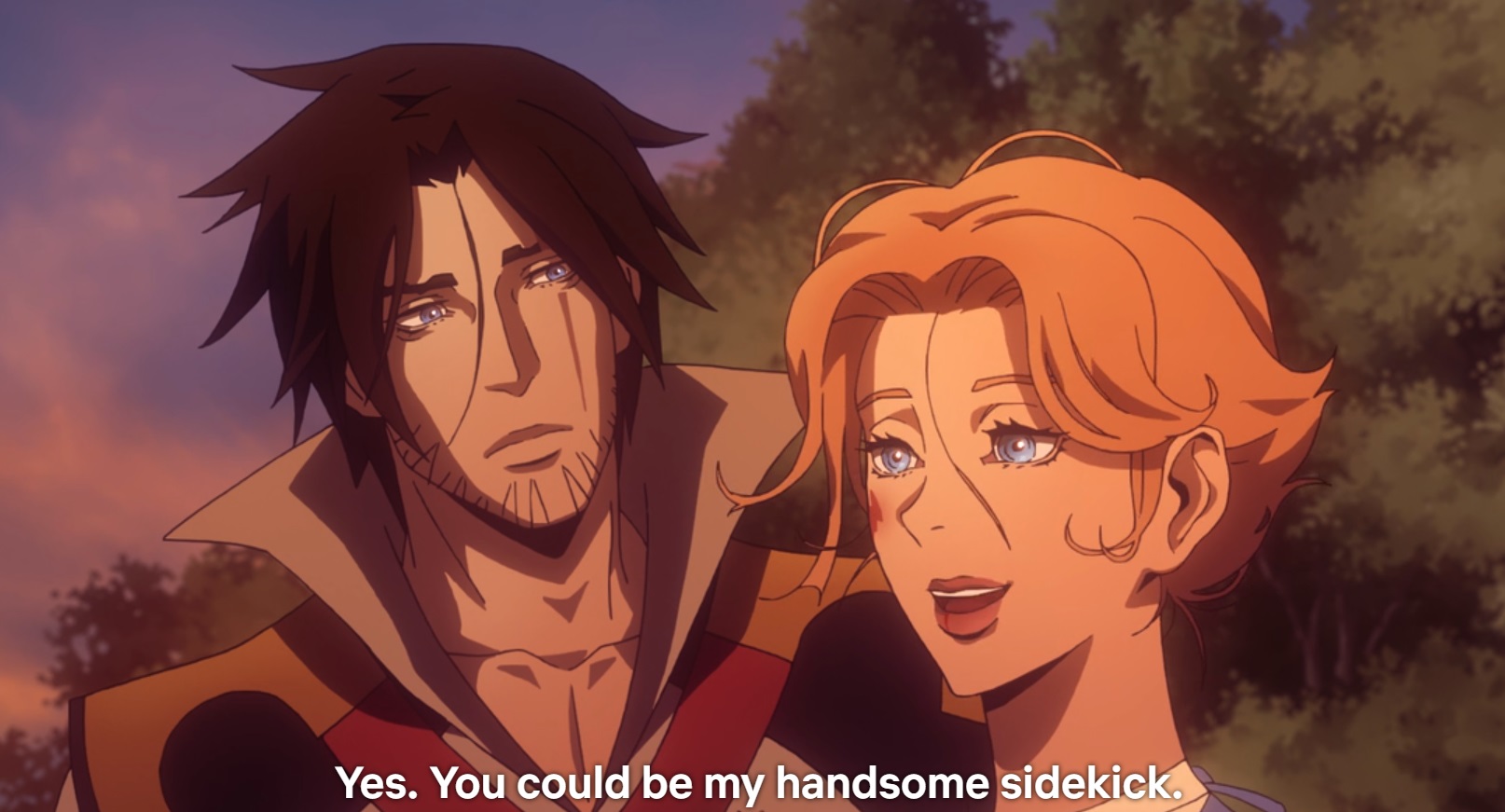
Of the main three, the brief run of the first season shortchanged Alucard the most. These moments explore a lot of his backstory and motivation. Defeating Dracula honors his mother, but he’s conflicted about his decision. Dracula is his father after all. This is referenced multiple times throughout the first six episodes, and then comes to a close in the best scene of the season.
During episode seven, father and son find themselves in Alucard’s childhood bedroom. Surrounded by books, toys and decorations made by Lisa, Dracula reflects on his actions. Quiet and emotional, the scene contrasts with the intense action that happened just moments before. Alucard talks to his father. It’s a quiet resolution to a central conflict of the show.
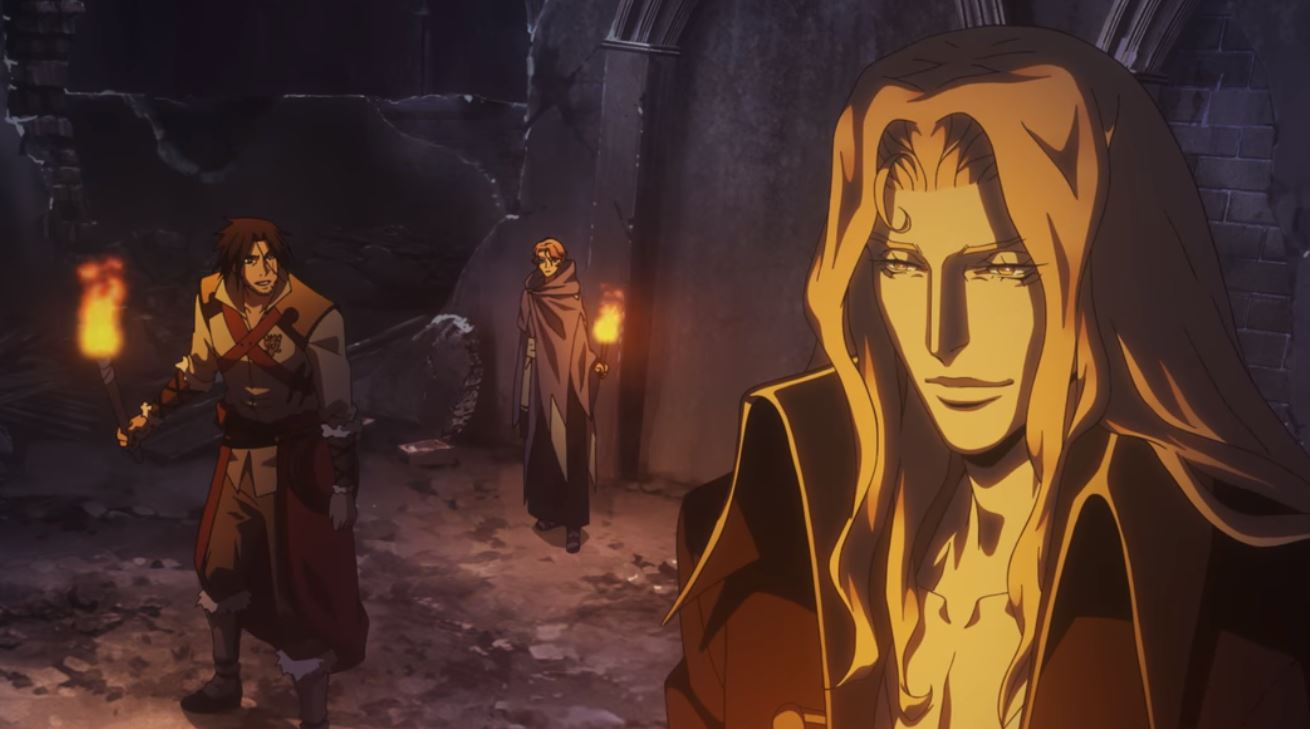
Resolution is something Castlevania doesn’t do well. By the end of the season, there are plenty of plot and character threads left hanging. Thankfully, Netlfix confirmed season three. Knowing there’s more to come helps, but it is still frustrating having so many unanswered story arcs. I hope they cover Symphony of the Night at some point.
When not focusing on the heroes, the first six episodes spend a lot of time with Dracula’s generals as they plot and scheme behind the dark lord’s back. Most of the scheming is done by the best new addition to the show, Carmilla.
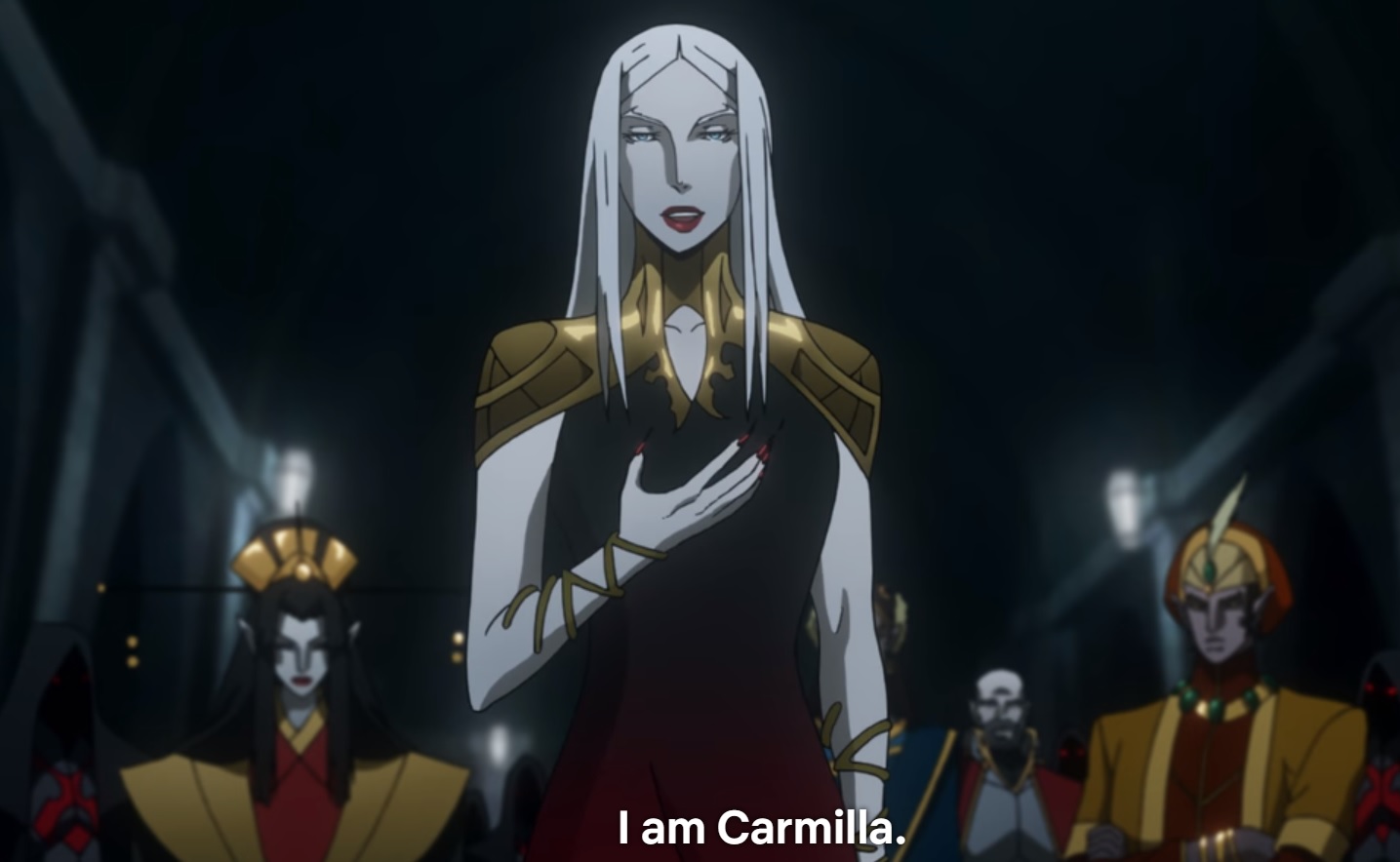
Commanding her own vampire army, she makes a play for control of the vampire armies. Intelligent, cunning and ruthless, Carmilla is terrifying and brilliant to watch. Each moment she’s on the screen is electric. Her lines are the best in show. A whole season of Carmilla would be amazing.
Amazing as Carmilla is, her storyline is one of the dangling plot threads. All of her actions this season go unresolved. Her story builds up and then nothing. The closest parallel would be Game of Thrones, which places the climax of the season on the second to last episode. Leaving the last episode to wrap up some aspects and give hints towards story lines to come next season. Nothing really finishes.
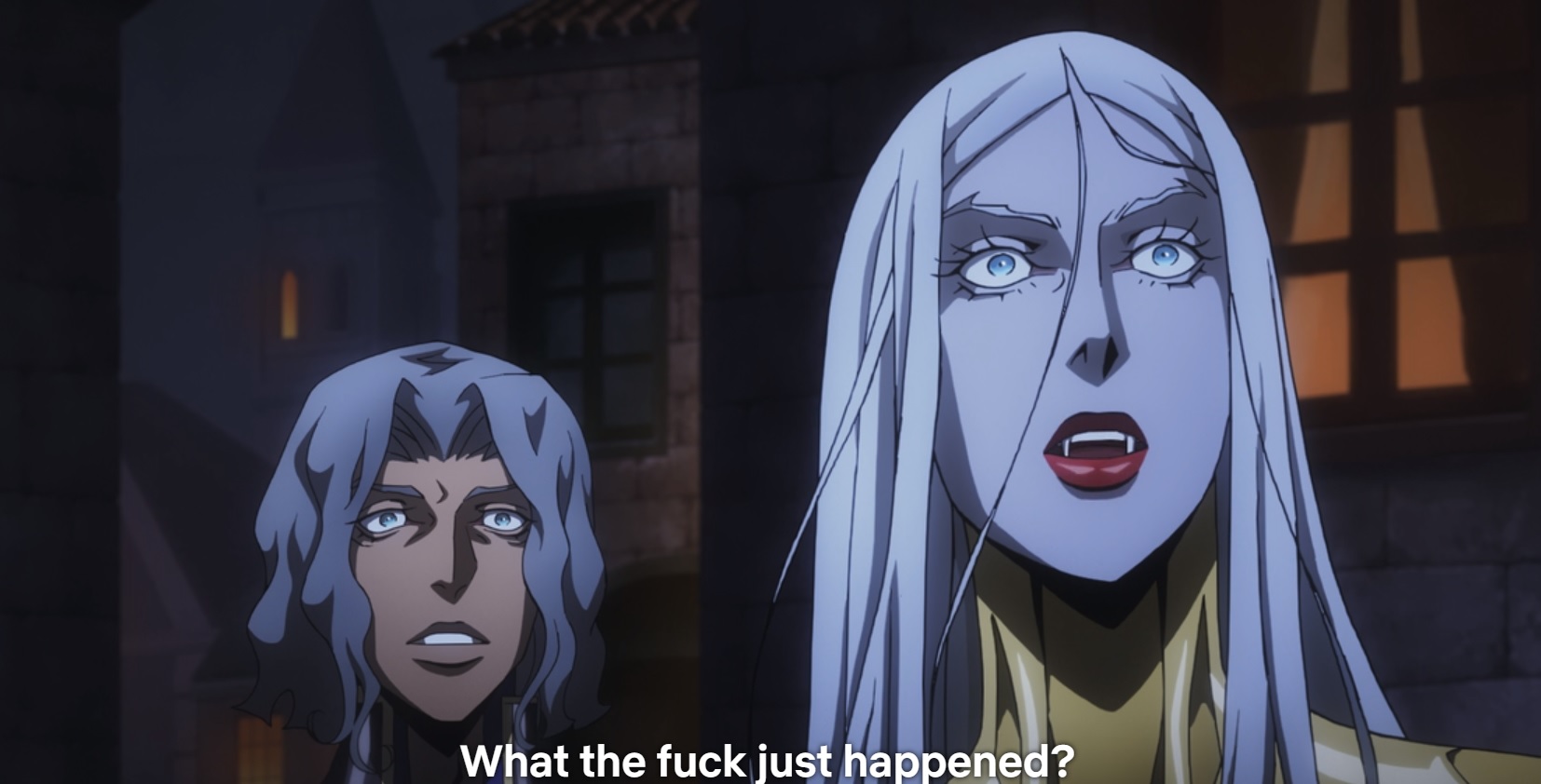
The flip side to the plethora of character moments is a reduction in action from season one. The amount of blood, gore and grisly deaths in season one was stomach churning at times. If you’re coming back for more, the volume will not match your expectations. The majority of the action happens in episodes six and seven. What little action there is does not disappoint.
Episode six’s fight in the library is well animated. Trevor strangles a demon with his Morningstar whip and then slices its neck with his sword, in one of the coolest moves of the show. The attacks look incredible, with the weight and momentum of the whip accounted for in the animation. They don’t spare the details.
The first half of episode seven is nonstop action. Our heroes attack Castlevania and the vampire army within. As the conclusion to the whole show, it works perfectly. Trevor, Sypha and Alucard function as an efficient team. Each has their unique strengths, but they work best together. When one struggles, another always jumps in to help.

I have to give Sypha credit for my favorite action piece in the whole show. She conjures a thin magic wall to slice a vampire in half, but at the last second the monster jumps out of the way. Running atop the wall, it closes in for the kill. Flicking her wrists, Sypha lifts the wall vertically, slicing the vampire in half as it passes up and through its body. It’s a clever use of her powers, and plays up her intellect.
Castlevania season two drags in places, but never stops dead. Character moments occasionally stretch too long, but the next scene will move faster to restore the show’s pace. The short episode count helps. If the season had been stretched another two episodes it may have crumbled. Eight works. Just as the story seems to go nowhere, it presents an explosive conclusion. If you can stand an very open-ended finale, watch Castlevania.
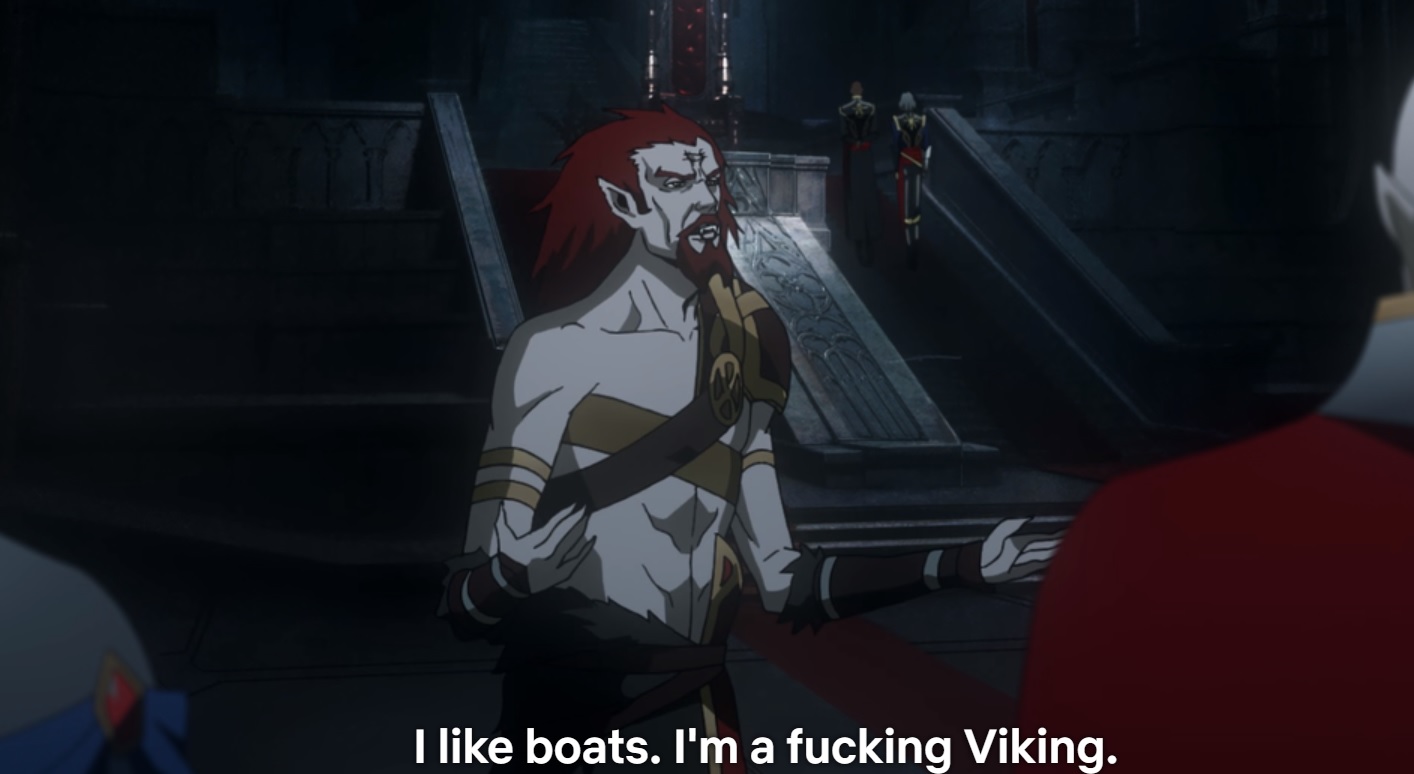
Ps. Godfried is the best!
Castlevania Season 2 Review
Summary
Pros
-Beautiful animation
-Engaging characters
-Carmilla and Godbrand
Cons
-Slow start to the narrative
-Lots of loose story threads
Binge it!

